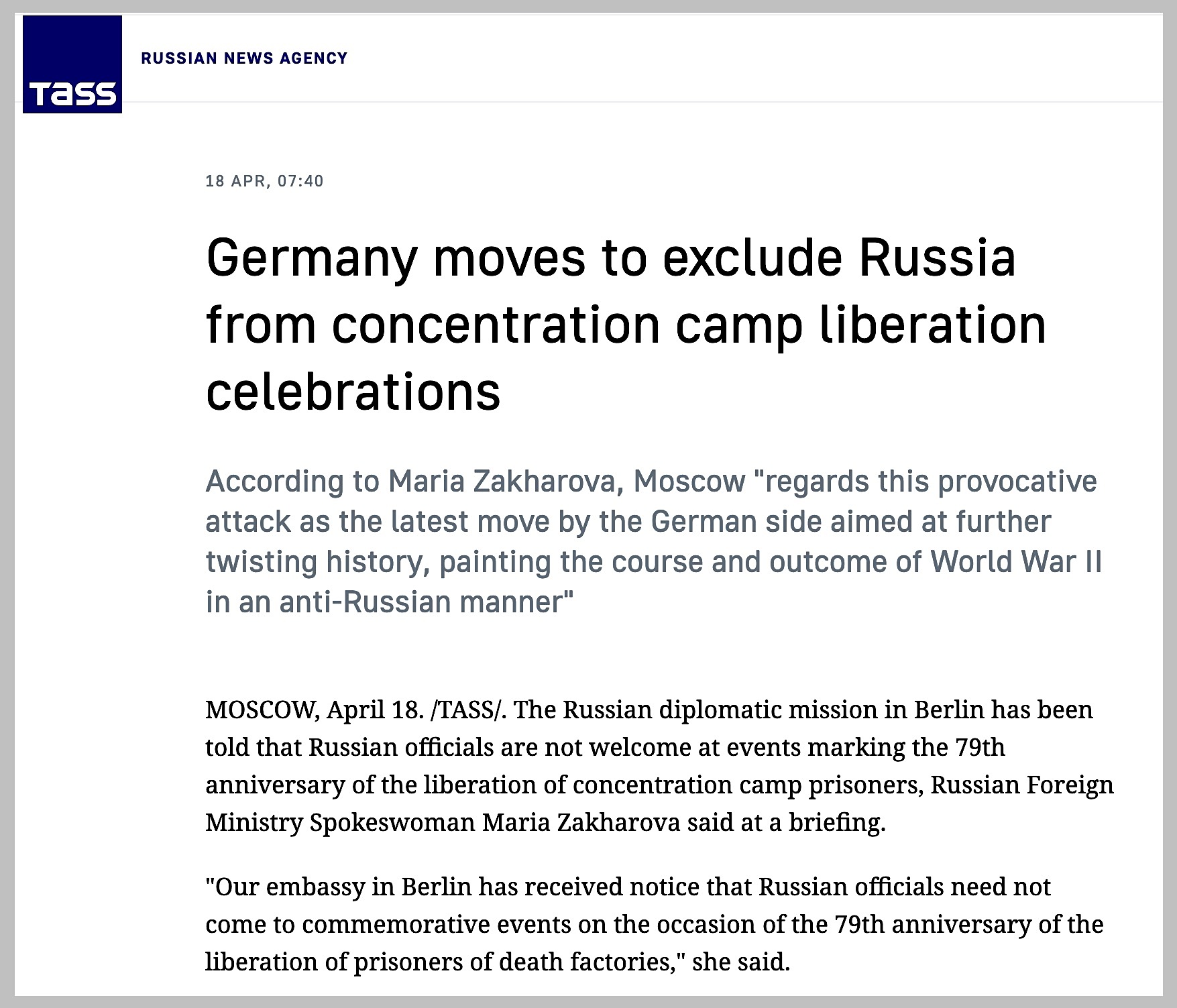By Professor Emeritus Marcello Ferrada de Noli
Despite Auschwitz-Birkenau prisoners camp was liberated by the Red Army on 27–01–1945, Russia Embassy in Berlin was notified that Russian officials are not welcome to attend commemorations of 79th anniversary of liberation of Nazi Germany’s prisoners camps in WW2.
The context:
– Russia is waging a war to purportedly de-nazify Ukraine [1]
– Germany is the top European country providing military aid to Ukraine, only second worldwide after the U.S. [2]
–An intercepted conversation among German high-ranking officers revealed plans to bomb a Russian bridge with German missiles. The conversation was later confirmed by both the German Defence Ministry and representatives of the army, which told Germany’s public broadcaster ZDF, “they considered the recording to be authentic”. [3]
–The German ministry is led by a prominent warmonger, Annalena Baerbock, whose grandfather Waldemar Baerbock was recently exposed of being an officer in Hitler’s army and “an unwavering Nazi” [4]

–A social psychiatric interpretation would be that the current geopolitical stance of Germany towards Russia, which includes a marked xenophobic sentiment by its leaders, is determined by a sturdy military revanchism of their elites. Partly rooted in family-related vendetta, conscious or subconscious motivated. Partly ideological. Otherwise, decisions taken by Chancellor Scholz and other government members under the “guidance” of the U.S. –which have been demonstrated directly against the interest of the German welfare and economy, as I anticipated already in April 2022 [5]– appears incomprehensible.
–Regarding other prominent names in the German government, including Chancellor Olaf Scholz, which have been circulating in social media as direct descendants of Nazi officials or collaborators, that has been in most cases refuted, e.g. in the German public state-owned international broadcaster DW [6]
–In my opinion, the irrational warmongering of current government elites do not represent the rational thinking of the civilized German public at large.
REFERENCES:
